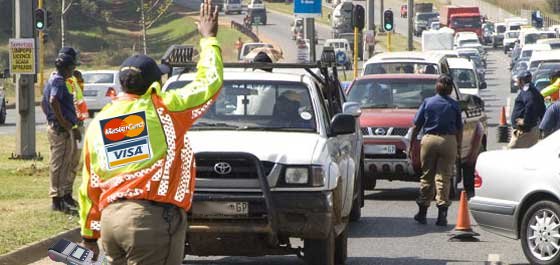The Free Market Foundation’s Jim Harris did some back-of-the-envelope calculations, and found some interesting statistics:
Anthony Minnaar, a crime researcher at Unisa, has conducted a … survey. He finds that house robbers have committed on average between 80 and 105 crimes before being caught and convicted. And captured heist gang members have been involved in between 30 and 40 heists, of which there are between 300 and 400 a year. So there are probably between 20 000 and 30 000 criminals in South Africa involved in most of the crimes. That happy notion implies that the remaining roughly 48-million of us are not criminal. Not yet, anyway. It hardly seems impossible for a determined and focused police force to capture 20 000 — 30 000 criminals within a year or so of single-minded investigation. Thereafter, presumably some low-level mopping-up effort would keep the authorities on top of opportunists rushing in to refill those emptied job-opportunity niches.
That does indeed sound manageable, though it raises the rather depressing question of how on earth South Africa’s criminals manage to clean out 100 houses before getting caught.
More interesting, though, is Harris’s stab at a solution:
The market-like trick would be to incentivise the police with variable wages dependent on captures, convictions and crime levels. Better still, outsource the task and its rewards to the private sector for quicker and more effective profit-driven action.
In principle, I’m okay with the notion of incentive pay (especially if it counters the allure of bribery). I’m also okay with the notion of a private police force. There’s no reason why such a force can’t be subject to the law, including special laws designed to apply only to them. There’s every reason to believe such a force, if subject to free-market competition, can be more efficient and effective than a public monopoly. Besides, it’s not like the notion of private armed security is foreign to South Africans. They’d have no market for their services if the public police force were sufficiently effective.
I do, however, have some questions on the subject, on which free-market philosophers may be able to enlighten me.
First, if a pay incentive is offered for captures and convictions — whether to private or public police officers — does this not create a perverse incentive to invade privacy, plant evidence, beat up the guilty, harass the innocent, and otherwise abuse the extraordinary rights a police officer has over individual liberty? How could such an unintended consequence be neutralised?
Second, if a private police force is established, how does one minimise the problem — already common in our public police forces — of focusing largely on cash-generating activities like enforcing minor traffic infringements on perfectly safe roads?
Third, if bribery and corruption are rife in our current public police force, what guarantee — other than trusting in the self-interest of shareholders — is there that the problem will be less severe in the case of a private police force?
As I said, in principle I like the idea. It’s not like our current police force is very effective, or immune to the lure of easy money, either of which would make a good case for retaining the status quo. However, one would have to not only prevent abuse of a police force’s extraordinary powers, but sufficiently reassure those who are instinctively sceptical of private firms and free markets. A legislative framework that achieves these goals will have to be fleshed out considerably if the concept of a private (or private-like) police force is to get any traction.
(First published on my own blog.)



